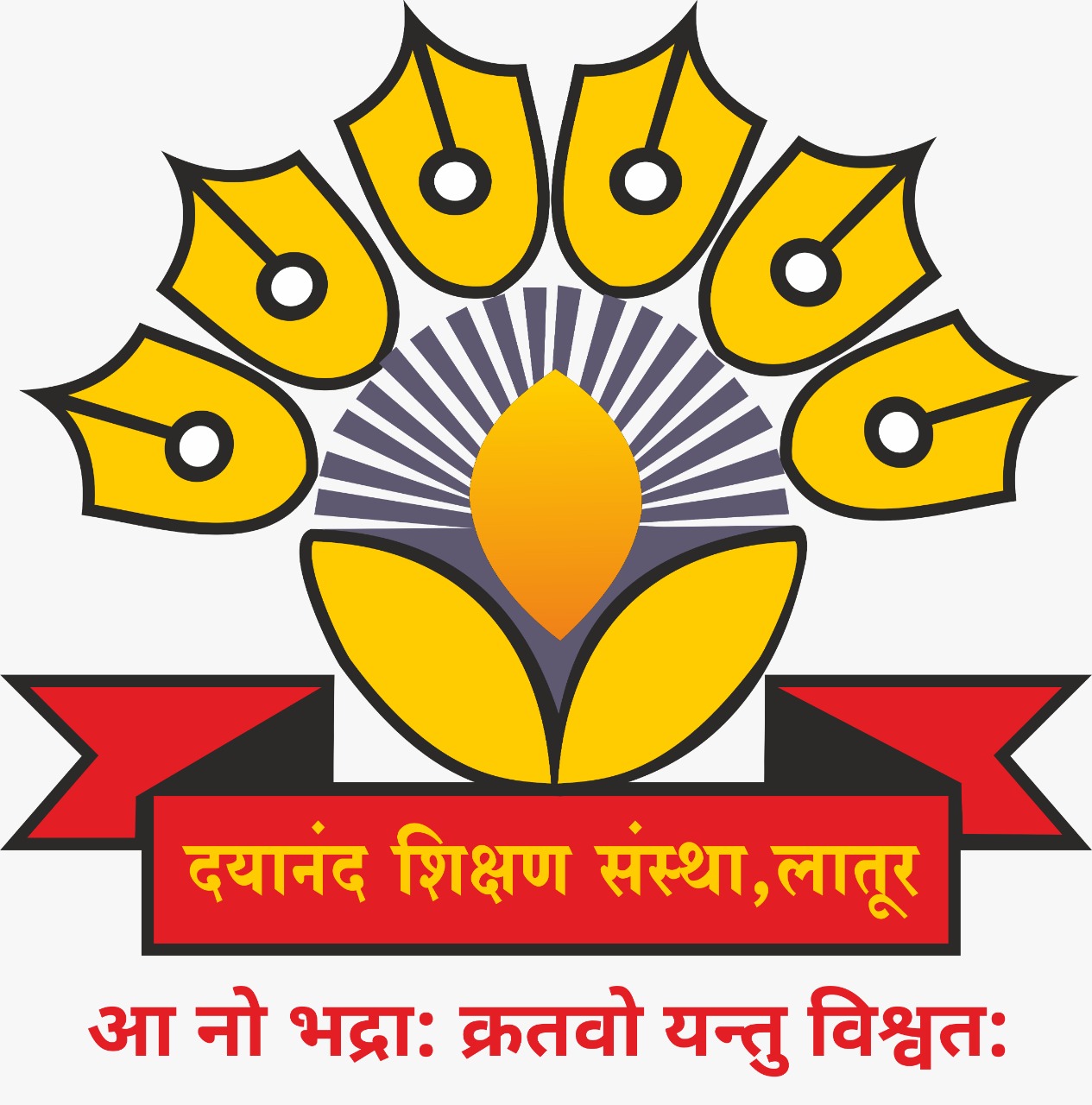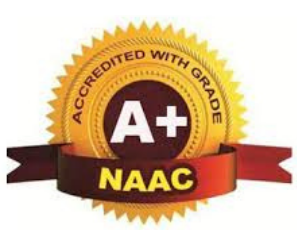Policy document on Professional Ethics Download PDF
For College Principal
The principal subject to the supervision and general control of the Management, the Principal as the Academic Head of the College shall be responsible for
1) Academic growth of the College.
2) Participation in the teaching, research and training programmes of the College.
3) Assisting in planning and implementation of academic programmes such as Refresher / Orientation course, seminars, in-service and other training programmes organized by the University / College for academic competence of the Faculty Member.
4) Admission of students and maintenance of discipline of the College.
5) Receipts, expenditure and maintenance of true and correct accounts.
6) The overall administration of the College and Recognized Institution and their Libraries and Hostels, if any.
7) Correspondence relating to the administration of the College.
8) Administration and supervision of curricular, co-curricular / extracurricular or extra-mural, students’ welfare activities of the College and Recognized Institution and maintenance of records.
9) Observance of the Act, Statutes, Ordinance, Regulations, Rules and other Orders issued there under by the University authorities and bodies, from time to time.
10) Supervision of the examinations, setting of question papers, moderation and assessment of answer papers and such other work pertaining to the examinations of College / Recognized Institution.
11) Overall supervision of the University Examinations.
12) Observance or provisions of Accounts Code.
13) Maintenance of Assessment Reports of teachers and administrative staff as prescribed and their Service Books.
14) Any other work relating to the College or Recognized Institution relating to the administration of the College as may be assigned to him by the Management, from time to time.
15) Preparation of institutional development plan for every five years with action plan of implementation.
16) Identification of avenues for resource generation.
17) Preparation for assessment, accreditation and academic audit of the college/institution.
18) Teacher welfare programmes for teachers which include promotions to administrative staff and Career Advancement Scheme on time.
19) Working as mentor for teachers and administrative staff of the college.
20) Maintenance and updating college/institutional website giving all mandatory disclosures of the college/institution and adopt ICT in governance and administration.
21) Practice inclusive leadership by involving all teachers in various committees for smooth conduct of the college/recognized institution.
22) Connecting college/institution with societal needs.
For Teachers:
The Code of Professional Ethics:
- The teachers and their responsibilities:
Any person who takes teaching as profession assumes the obligation to conducts himself/herself in accordance with the ideals of the profession. The teacher is constantly under the scrutiny of his/her students and the society at large. Therefore, every teacher shall see that there is no incompatibility between his/her precepts and practice. The national ideals of education which have already been set forth and which he/she should seek to inculcate among students must be his/her own ideals, duly reflecting in his conduct. The profession further requires that the teacher shall be calm, patient and communicative by temperament and amiable in disposition.
A teacher should:
- Adhere to a responsible pattern of conduct and demeanor expected of him/her by his/her peers and the community.
- Manage his/her private affairs in a manner consistent with the dignity of the profession.
- Seek to make professional growth continuous through study and research writing and decent conduct.
- Express free and frank opinion by active participation at professional meetings, seminars, conferences, etc. towards the contribution of knowledge.
- Maintain active membership of professional organizations, subscribing academic/subject periodicals, and strive to improve education and profession through them.
- Perform his/her duties in the form of teaching, tutorial, practical and seminar work conscientiously and with dedication.
- Co-operate and assist in carrying out functions relating to the educational responsibilities of the University such as: assisting in appraising applications for admission, advising and counseling students as well as assisting in the conduct of University and College examinations, including supervision, invigilation and evaluation, and
- Participate in extension, co-curricular and extracurricular activities including community service.
- Teachers and the students:
Teachers and students should
- Respect the right and dignity of the student in expressing his/her opinion.
- Deal justly and impartially with students regardless of their religion, caste, sex, political, economic, social and physical status.
- Recognize the difference in aptitude and capabilities among students and strive to meet their individual needs.
- Encourage students to improve their attainments, develop their personalities and at the same time contribute to community welfare.
- Inculcate among students scientific, progressive and rational outlook and respect for physical labor and ideals of democracy, patriotism and peace.
- Be affectionate to the students and not behave in a vindictive manner towards any of them for any reason.
- Pay attention to only the attainment of the student in the assessment of merit.
- Make himself available to the students even beyond their class hours and help and guide them without any remuneration or reward.
- Aid students to develop an understanding of our national heritage and national goals, and
- Refrain from inciting students against other students, colleagues or administration.
- Teachers and Colleagues :
The teacher should
- Treat other members of the profession in the same manner as they themselves wish to be treated.
- Speak respectfully of other teachers and render assistance for professional betterment,
- Refrain from lodging unsubstantiated allegations against colleagues to higher authorities,
- Refrain from exploiting considerations of caste, creed, religion, race or gender in their professional Endeavour.
- Be thoroughly social and humane, democratic and rational, towards other teachers,
- Strive at any cost to remove and wash out the local tensions and controversies and disputes.
- Believe in union and unity of the colleagues.
- Government Resolution No: Misc-2018/C.R.56/18/UNI-I
- Teachers and authorities :
The teacher should
- Discharge their professional responsibilities according to the existing rules and adhere to procedure and methods consistent with their profession in initiating steps through their own institutional bodies and/or professional organizations for change of any such rule detrimental to the professional interest.
- Not undertake any other employment and commitment including private tuitions and coaching classes;
- Co-operate in the formulation of policies of the institution by 67 accepting various offices and discharge responsibilities which such offices may demand;
- Co-operate with the authorities for the betterment of the institutions keeping in view the interest and in conformity with dignity of the profession;
- Should adhere to the conditions of contract;
- Give and expect due notice before a change of position is made; and
- Refrain from availing themselves of leave except on unavoidable grounds and as far as practicable with prior intimation, keeping in view their particular responsibility for completion of academic schedule.
(e) Teachers and nonteaching employees:
(i) The teachers should treat the non-teaching employees as colleagues and equal
partners in a co-operative undertaking, within every educational institution.
(ii) The teachers should help in the function of joint staff council covering both teachers and the nonteaching employees.
(F)Teachers and guardians:
The teachers shall
- Try to see through teachers’ bodies and organizations that institutions maintain contact with the guardians of their students, send report of their performance to the guardians whenever necessary and meet the guardians in meetings convened for the purpose for mutual exchange of ideas and for the benefit of the institution.
- Government Resolution No: Misc-2018/C.R.56/18/UNI-I
(g) Teachers and Society:
The teachers shall
- Recognize that education is a public service and strive to keep the public informed of the educational programmes which are being provided.
- Work to improve education in the community and strengthen the community’s moral and intellectual life.
- Be aware of social and economical problems and take part in such activities as would be conducive to the progress of society and hence the country as a whole.
- Perform the duties of citizenship, participate in community activities and shoulder responsibilities of public office.
- Refrain from taking part in or subscribing to or assisting in any way, activities which tend to promote feeling of hatred or enmity among different communities, relations or linguistic groups but actively work for National Integration.
For Director of Physical Education and Sports
The Director of Sports and Physical Education shall
- Cultivate excellence in various domains of sports and also to promote a spirit of healthy competition;
- Promote sports, culture and organize activities in the field of sports in college / institution.
- Co-ordinate and organize activities related to various sports jointly with regional and national bodies.
- Organize university level competitions, sports skill development camps in various sports in the college campus.
- Train students for regional, national and international competitions in various sports.
- To prepare the report of the Board of Physical Education to be submitted before the Principal / Director / Management of the concerned college / institute.
- Undertake any other task that may be assigned to him by the college / institute authorities, so as to carry out objectives of the Physical Education.
- Exercise such other powers and perform such other duties as prescribed by or under the Act or assigned to him by the Principal of the college from time to time.
For Librarian
The Librarian shall perform the following among other duties :
- The Librarian shall provide a wide range of services to the user, by making available in a convenient and attractive form to students and faculty members, a well organized and properly arranged stock of books, journals and other relevant materials which are to be kept properly indexed, catalogued and updated.
- The Librarian shall provide reading and lending facilities and service relating to reference, documentation and bibliography.
- The Librarian shall always try to bring books, students and scholars together under the conditions which encourage reading for pleasure, self discovery, personal growth and sharpening of intellectual curiosity.
- The Librarian shall perform the duties of the teacher as mentioned in the provision (a), (d), (f) and (g) of the Statute 240.
For Non-teaching staff:
- The services of the college Non-teaching staff are governed by the standard code of Maharashtra Civil Services Rules to the extent applicable.
- Unlike the standard code, for each aspect of service conditions, there are separate detailed rules like:
- The Maharashtra Civil Services (conduct) Rules 1981
- The Maharashtra Civil Services (Discipline and Appeal) Rules 1979
- The Maharashtra Civil Services (General Conditions of Services) Rules 1981 the Maharashtra Civil Services (Leave) Rules 1981
- The Maharashtra Civil Services (Regulation of Seniority) Rules 1999.
- Any work assigned by the Principal, Heads of the departments should be willingly accepted and should execute effectively.
- Ensure that college services such as photocopying and postage are used only for administrative purposes.
- During examination, always follow time schedule and co-operate with all staff for any needy procedure.
- All should be punctual when coming to and leaving from work.
- All should respect their colleagues.
- All should treat the college property with respect and care
- All supporting staff should make work rhythm with their routine work.

